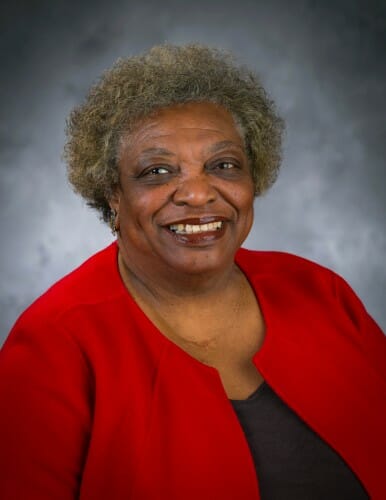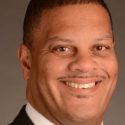Q&A: Gloria Hawkins on her return as an ombuds
Following 34 years of continuous service at the University of Wisconsin–Madison, Gloria Hawkins retired in 2019. Hawkins had many roles in her career at UW–Madison, including assistant vice provost in the Division of Diversity, Equity & Educational Achievement and Director of the Mercile J. Lee Scholars Program, and Assistant Dean for Multicultural Affairs in the School of Medicine and Public Health.
With her passion for the university and its people still strong, Hawkins returned to campus in June to serve as a UW ombuds. We asked her about what brought her back to this new role.
Q: After retiring from UW–Madison three years ago following a long and distinguished career, you decided to return. What drew you back to campus and this new role?

Gloria Hawkins Photo by Andy Manis
I was attracted to the ombuds position because of the opportunity to give back to an institution which enabled me to have a wonderful, gratifying professional career. I never thought of my work as a “job” but as a career where I was growing personally and professionally, as well as contributing to the academic community in various ways. There were a lot of people, some of whom I will never know, who contributed to my success, beginning with my graduate experience and later my work in four colleges and a division within the provost office. Like many who have had a long career, I encountered challenges along the way. Nevertheless, I found people who I could talk to and help me problem-solve and identify resources. As time passed, I found myself sharing what I had learned with others.
I never forgot how people helped me feel empowered, which was instrumental in my growth and development as a professional. Now is the time for me to give back in a consistent and, hopefully, impactful way.
Q: How does your career experience at UW–Madison inform your work as an ombuds?
My tenure at UW–Madison has prepared me well to be an ombuds. As you are aware, my professional experiences were primarily in student affairs and diversity, where I advised, listened to, and counseled undergraduate and graduate/professional students with the goal of empowerment for their success. Countless hours were spent listening, probing, helping students define their short- and long-term goals, clarifying issues, developing creative solutions that would help students see and tap into their potential, identifying resources and making referrals when necessary. I often consulted with colleagues, namely faculty and staff, to help students negotiate an environment that many times was perceived as unwelcoming and unfair.
I, therefore, bring the skills that I acquired in my past career to the ombuds position. I am an attentive listener, a skilled questioner who can enable faculty and staff to reflect, clarify, and problem-solve. When necessary, I will identify campus, community, and professional resources that will help faculty and staff address their issues. I have a long-standing commitment to equality and equity. These are inherent in the core principles of the work of ombuds. Equality, fairness, inclusiveness and access are the core principles that we follow. And they reflect my conviction of service for the greater good to create an equitable, fair, accessible and inclusive community so that people can become empowered to reach their full potential.
The University has so many talented and creative faculty and staff. The Ombuds Office is a resource that can provide support for employees so that they can be their best advocates. It is important that people feel valued and respected so that they can thrive and carry out their work in a productive and fulfilling way. When that occurs, all have the potential to be the beneficiaries — the institution, faculty and staff.
Q: For those who may not be familiar with the Ombuds Office, what function does it perform on campus? How do employees access its resources?
The Office Ombuds Office was established to provide an informal, neutral safe place for UW–Madison employees to address workplace concerns without fearing reprisals. It is a free service where faculty and staff can engage in a confidential discussion about their concerns and explore possible strategies for addressing and resolving the issues. The ombuds guide the employee through the process and identify resources that may be helpful in the resolution of issues. Where appropriate, the ombuds clarify issues, give feedback, and facilitate communication between parties when conflict arises. The Ombuds Office does not replace other formal services and processes at the University, but supplements them. Furthermore, in carrying out its responsibilities, the Ombuds Office follows its core principles of fairness, equality, inclusion and access.
All university employees (faculty, academic staff, university staff, students and postdocs) have access to the services of the Ombuds Office. Contact ombuds.wisc.edu for more information or call (608) 265-9992 to schedule a private, confidential appointment.
Q: The Ombuds Office website indicates that individuals may seek assistance with workplace concerns. Are there types of concerns or issues that you feel most prepared to address?
The strengths I bring to the position include my commitment to and experience in addressing diversity and equity matters in a variety of workplace scenarios such as hostile and intimidating behavior; perceived unfair treatment and performance evaluations; and accommodations. My tenure on campus and the nature of that work have enabled me to be knowledgeable about various campus resources. The success that I had in my career was due in part to the informal mentoring and advising that I received from colleagues, friends, and others who saw my potential. I learned through informal discussions with colleagues about the decentralized structure of the campus and within it how various units operated.
As a member of an ombuds team, I bring my experience in collaborating successfully on many university matters to assist individuals in addressing workplace issues. The expertise and experiences of the faculty, academic and university staff on the ombuds team are invaluable. We consult with each other in an effort to best serve the employee in addressing and resolving an issue or a concern.



